Founding Global Security: CMU Hosts International Fellows
By Leah Weingartner
In today's interconnected world, firsthand exposure to cutting-edge research is invaluable for international leaders seeking to understand and address global challenges. Carnegie Mellon University (CMU) recently provided such an opportunity, welcoming a distinguished group of international fellows for in-depth briefings on key topics from CMU's leading experts, followed by a tour of the robotics research lab. Carnegie Mellon Institute for Strategy and Technology (CMIST) joined with Heinz College of Information Systems and Public Policy to host 79 officers, representing 77 countries from the International Fellows Program of the United States Army War College, for this exclusive event.
Through the International Fellows Program, officers spend a year studying military doctrine, strategy, and leadership at the Army War College in Carlisle, PA. The curriculum includes field studies designed to expose them to US political institutions, academic perspectives, and technological advancements. Their visit to CMU served as a platform for an intellectual exchange on topics ranging from geopolitical realignment to artificial intelligence (AI) to clean technology.
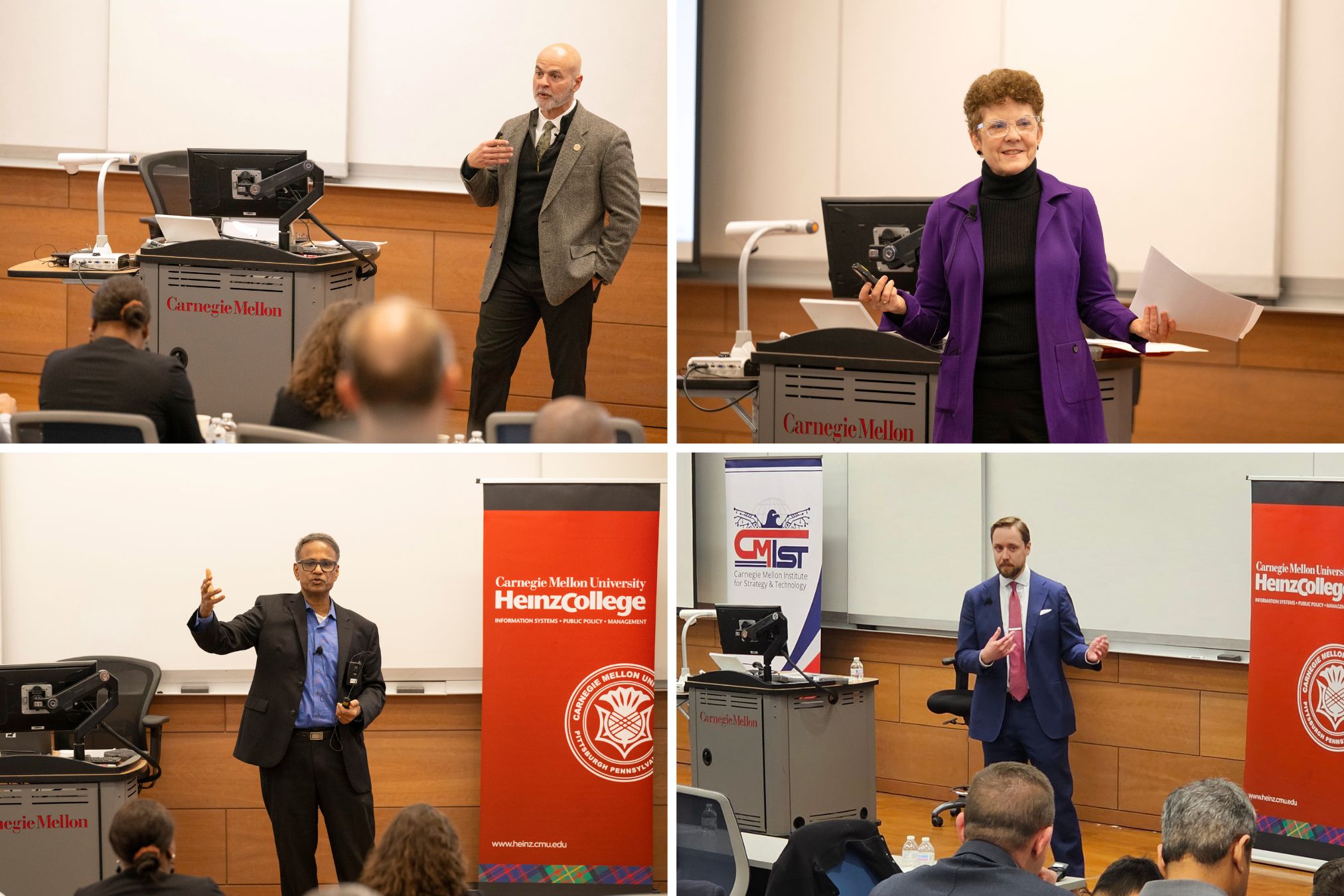
Clockwise from left: CMIST Deputy Director Ralph López, CMIST Director Audrey Kurth Cronin, Harry Krejsa, director of studies at CMIST’s Washington Office, and Heinz College Dean Ramayya Krishnan.
The visit commenced with an evening reception that gave officers the opportunity to meet with the faculty, staff, and students of CMIST and Heinz College. The following day, the fellows attended a series of briefings focused on current global security issues and technological trends. Ralph López, CMIST’s deputy director for security policy studies, provided a general welcome to our guests with an overview of CMU’s commitment to interdisciplinary research in security and technology.
In the initial briefing, CMIST Director Audrey Kurth Cronin shared her analysis of the causes and implications of global realignment, drawing historical parallels between today’s shifting geopolitical landscape and past periods of global instability. Highlighting the role of technological advancements in shaping modern conflicts, Cronin underscored the increasing reliance on state-sponsored proxies and disruptive actions that drive military escalation.
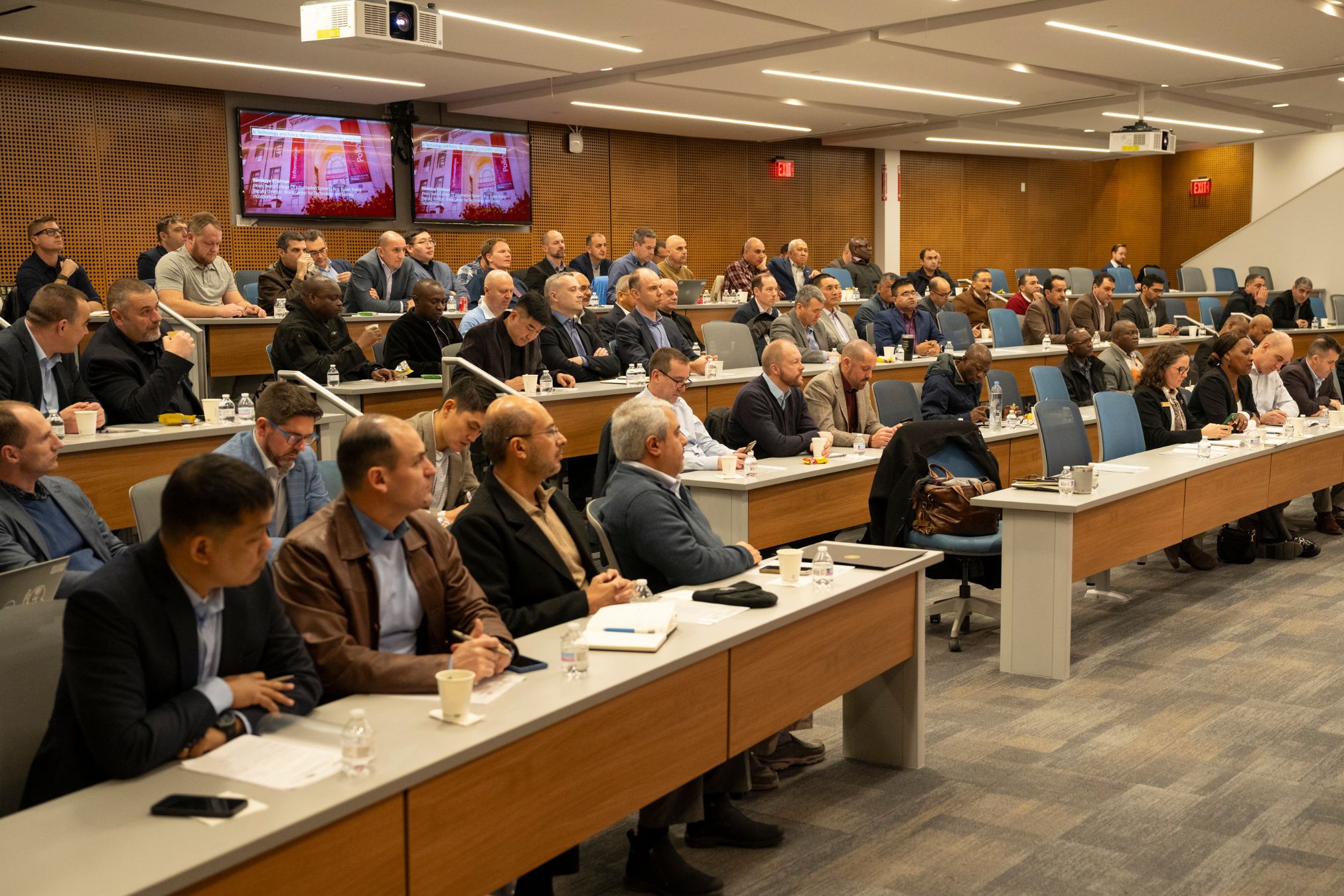
Officers through the International Fellows Program attend a briefing.
“A single event can have dramatic consequences,” Cronin said, focusing on key geopolitical events. For example, Russia’s invasion of Ukraine has realigned European security policies, strengthened NATO, and deepened the Russia-China cooperation in technology and arms. She also covered the growing potential conflict in Taiwan, noting that China expanded its nuclear arsenal and economic strategies to influence that region. Surveying the strategic realignments occuring in Asia, the Middle East, and Latin America, the subsequent discussion emphasized the role of emerging technologies in these conflicts.
During the Q&A session, officers from Romania and Israel engaged with Cronin on issues ranging from the effectiveness of counterterrorism strategies to the role of international institutions in conflict resolution. Drawing on her research, Cronin addressed their questions by detailing historical patterns of insurgencies and political responses in counterterrorism.
The second briefing, given by Heinz College Dean Ramayya Krishnan, explored the future of AI and its implications for security, governance, and public policy. Krishnan discussed the rapid evolution of AI models, the ethical considerations surrounding deepfake technologies, and the challenges of AI reliability and oversight.
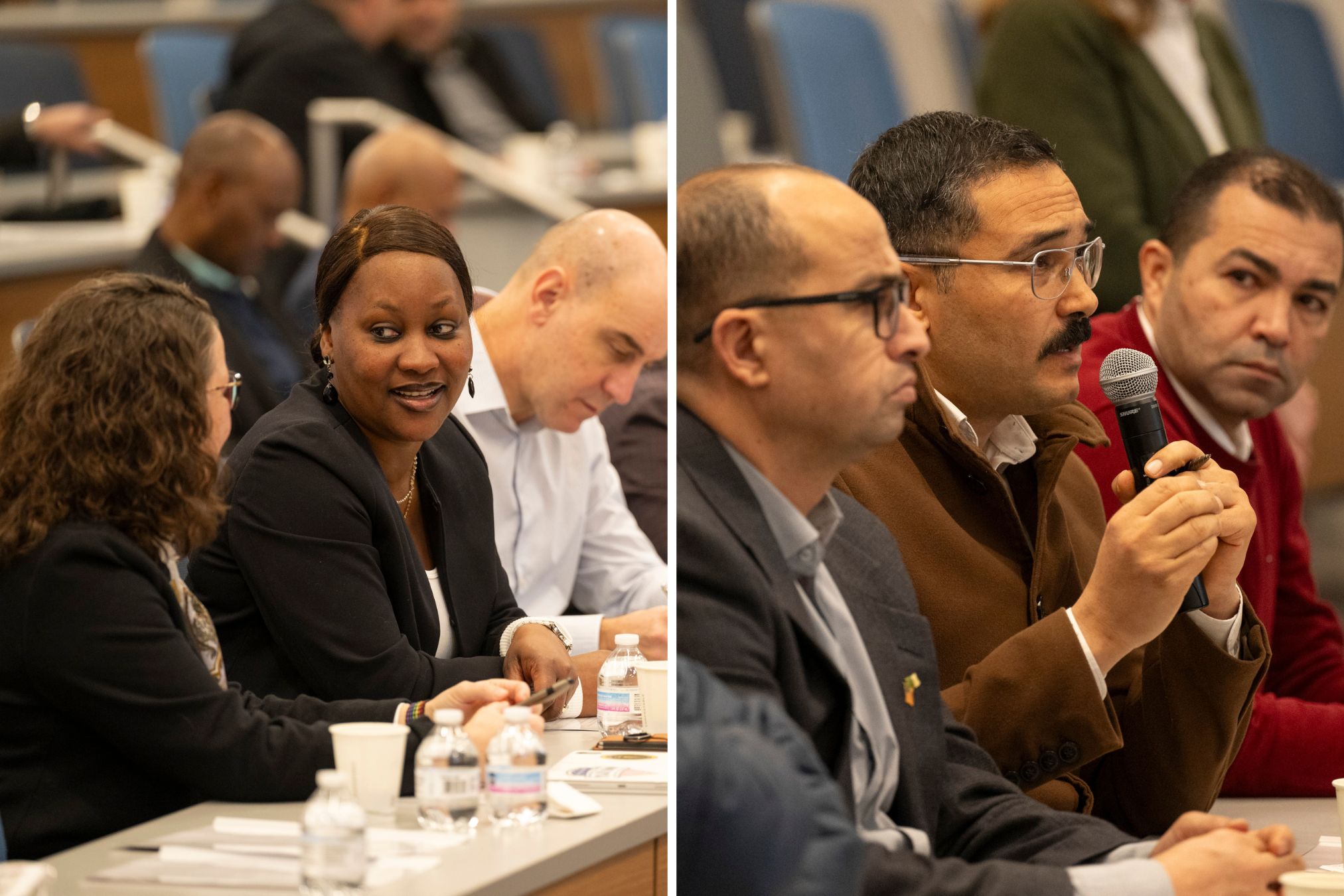
Attendees ask questions.
Highlighting AI’s transformative potential, he addressed key questions such as whether organizations should build their own AI models or rely on existing platforms and what the potential trade-offs between open-source and proprietary systems might be. He also examined the growing commoditization of AI tools and the importance of robust testing protocols to ensure system reliability.
The final presentation, delivered by the director of studies at CMIST’s Washington Office, Harry Krejsa, focused on clean technology and energy security. Krejsa examined how advancement in battery technologies, renewable energy, and infrastructure investment can mitigate cyber threats. While addressing the challenges in securing stakeholder buy-in for new energy frameworks, Krejsa emphasized the role of surplus electricity generation in states like California and Texas.
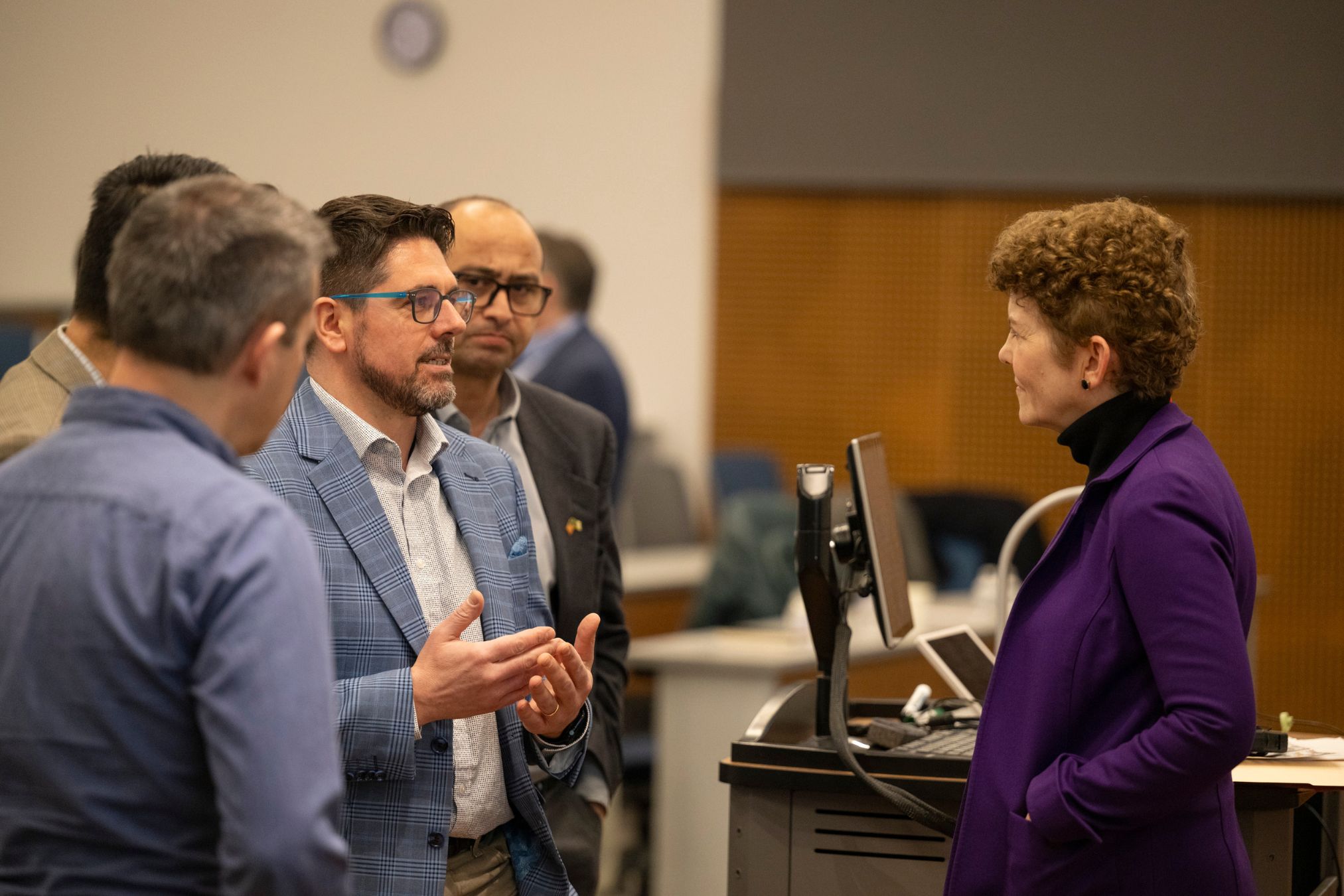
Fellows speak with Audrey Kurth Cronin.
The fellows’ visit concluded with an informative tour of CMU’s National Robotics Engineering Center (NREC). Officers observed innovative robotics research, previewing a remote reconnaissance vehicle, a three-story-high robotic system designed for large-scale construction, and a John Deere vehicle in development for agricultural automation.
This immersive experience provided a glimpse at the groundbreaking work being conducted at CMU and underscored the critical importance of fostering these international collaborations to share knowledge on a global scale. The visit equipped the fellows with insights into security trends, emerging technologies, and the interdisciplinary research shaping the future.
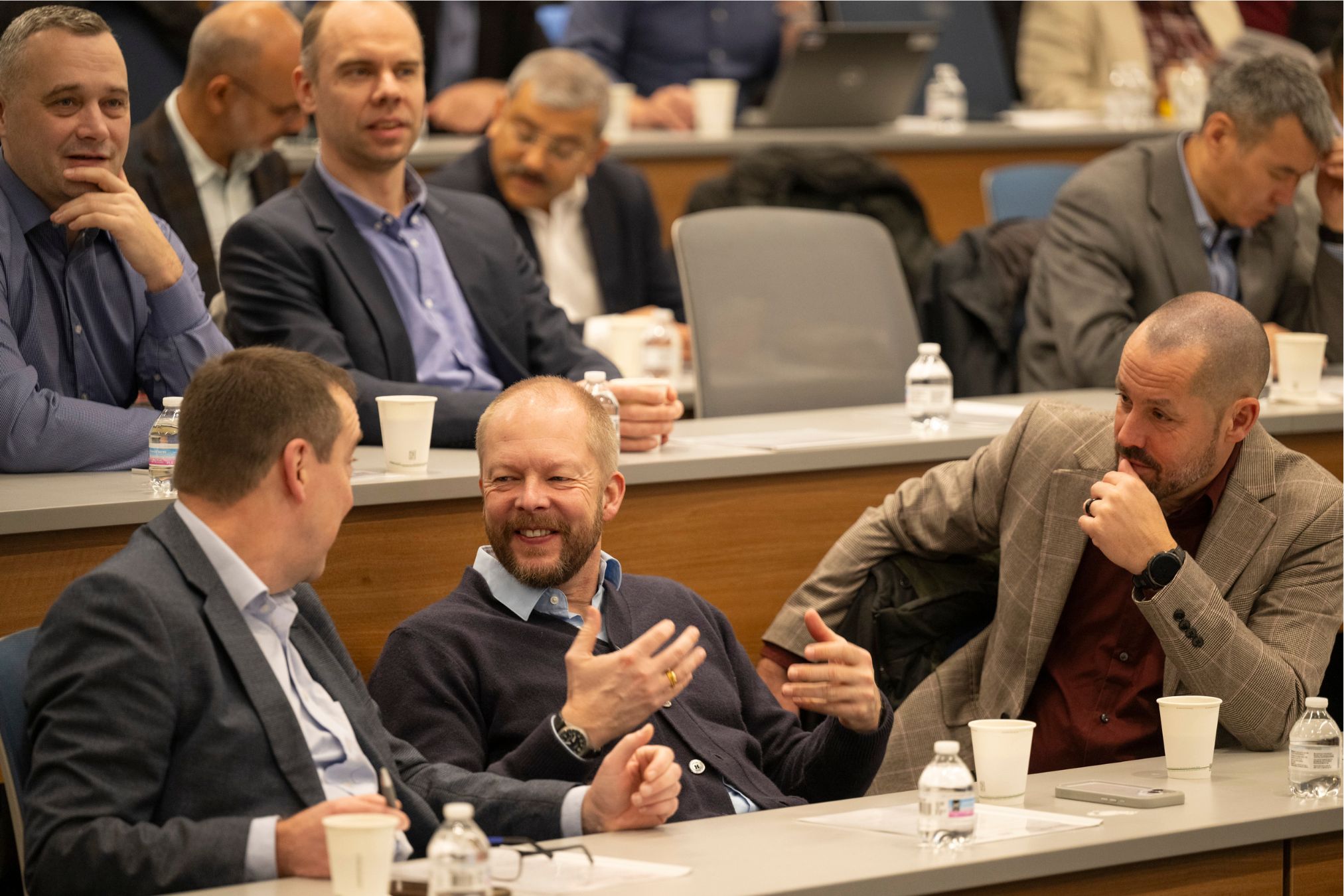
Attendees engage in discussion.
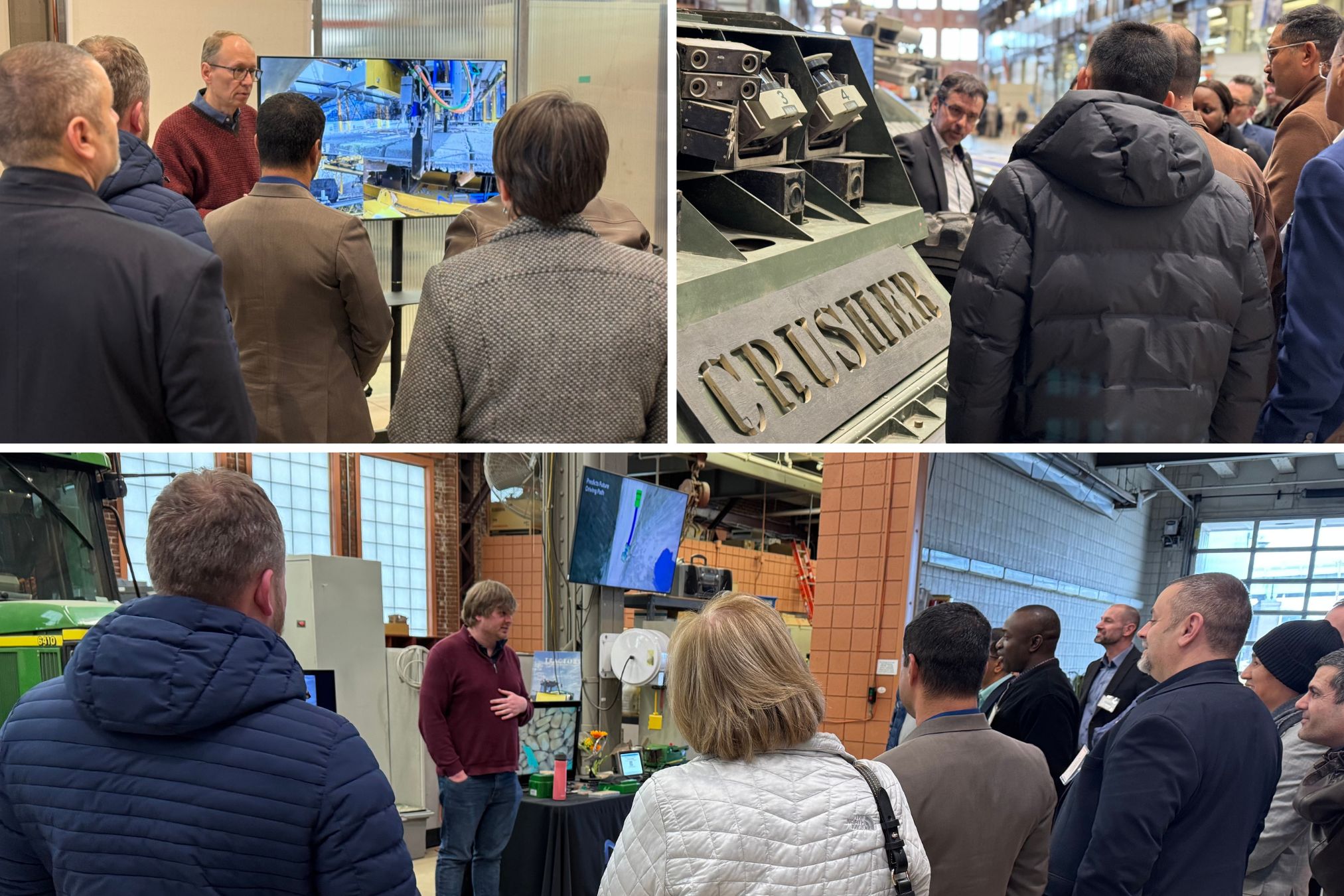
Visiting fellows tour NREC and preview innovative robotics research.
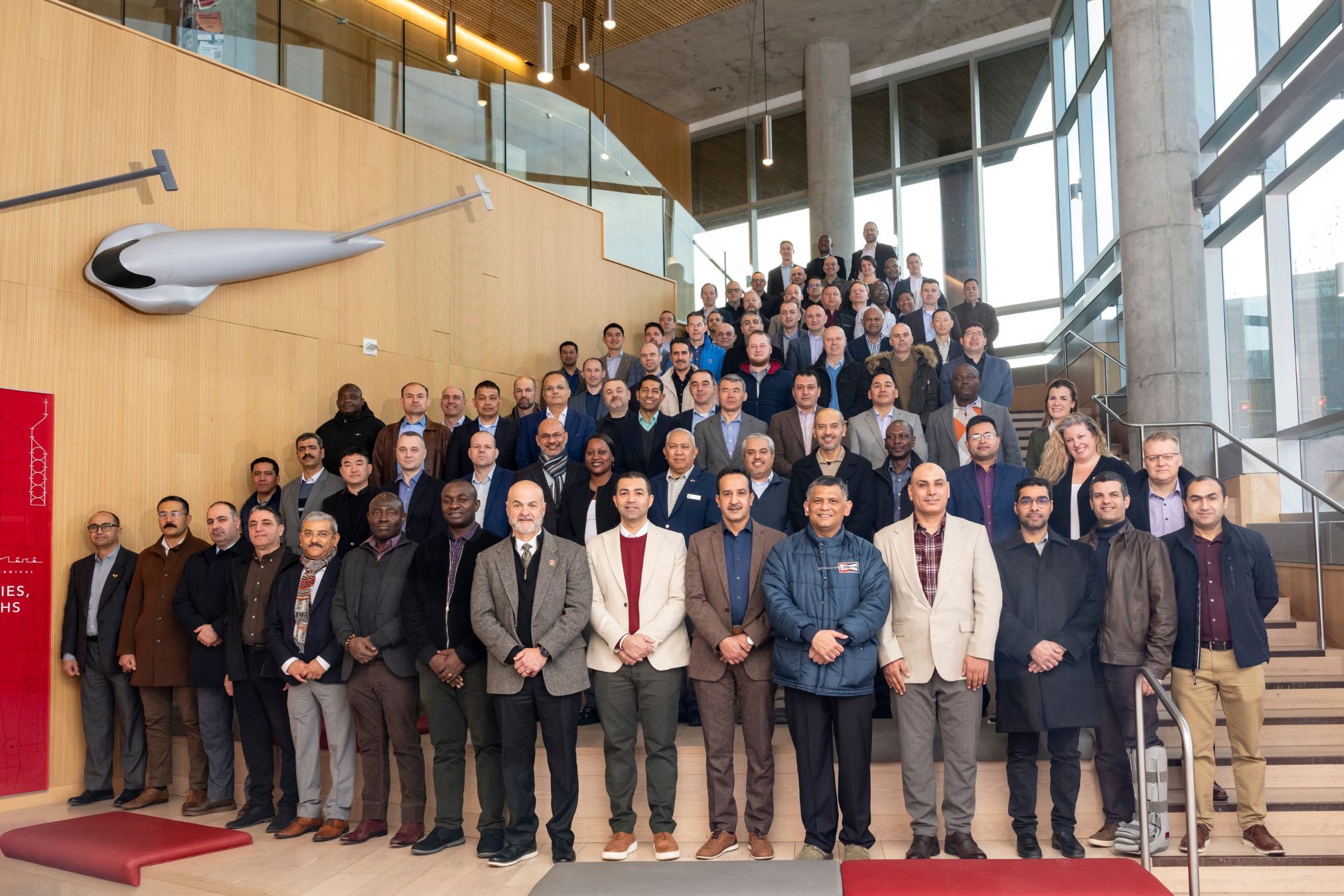
Officers from the International Fellows Program of the United States Army War College pose for a group photo.